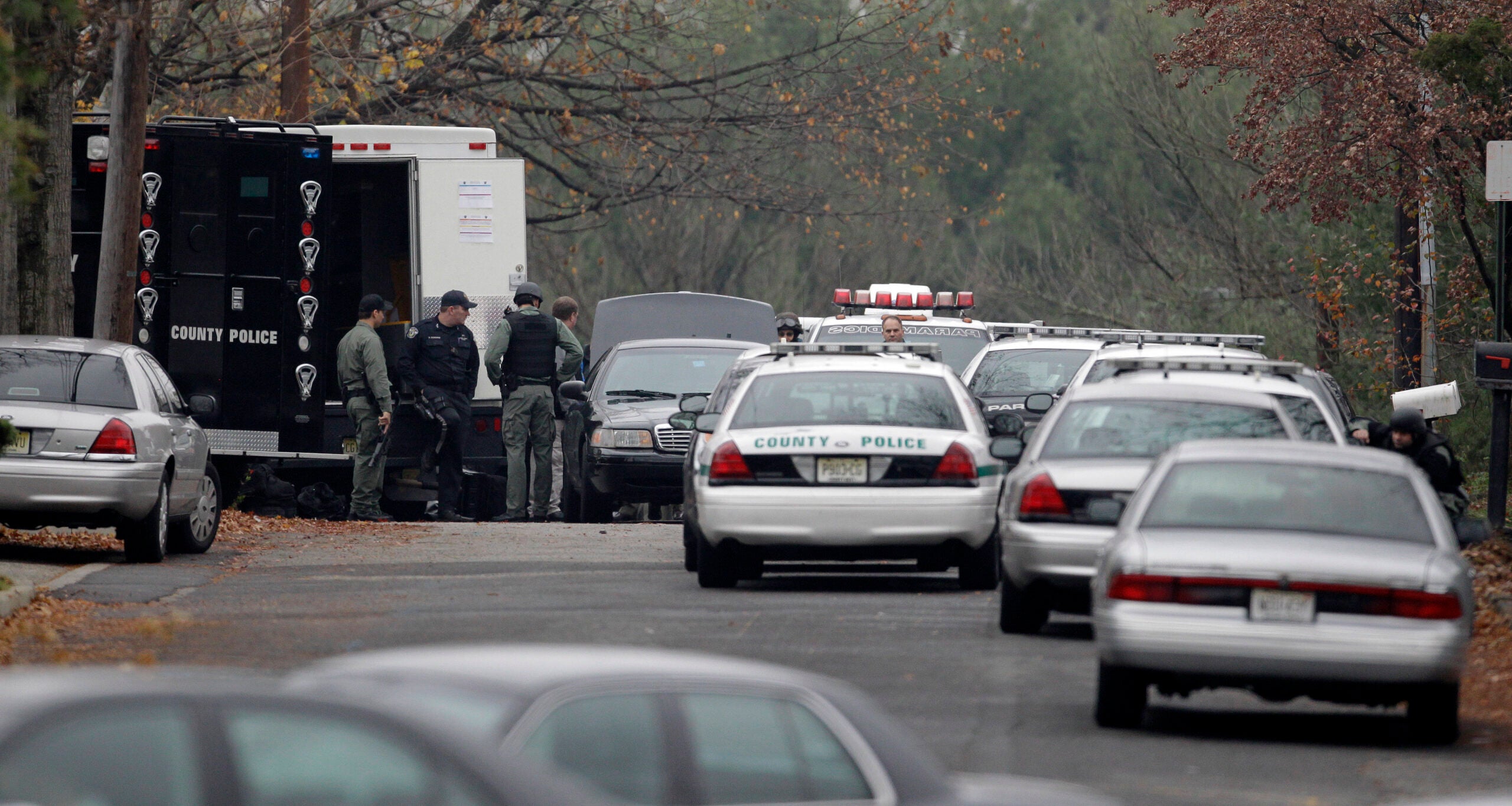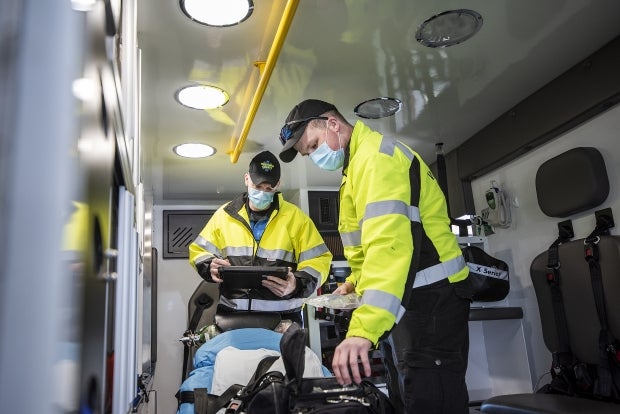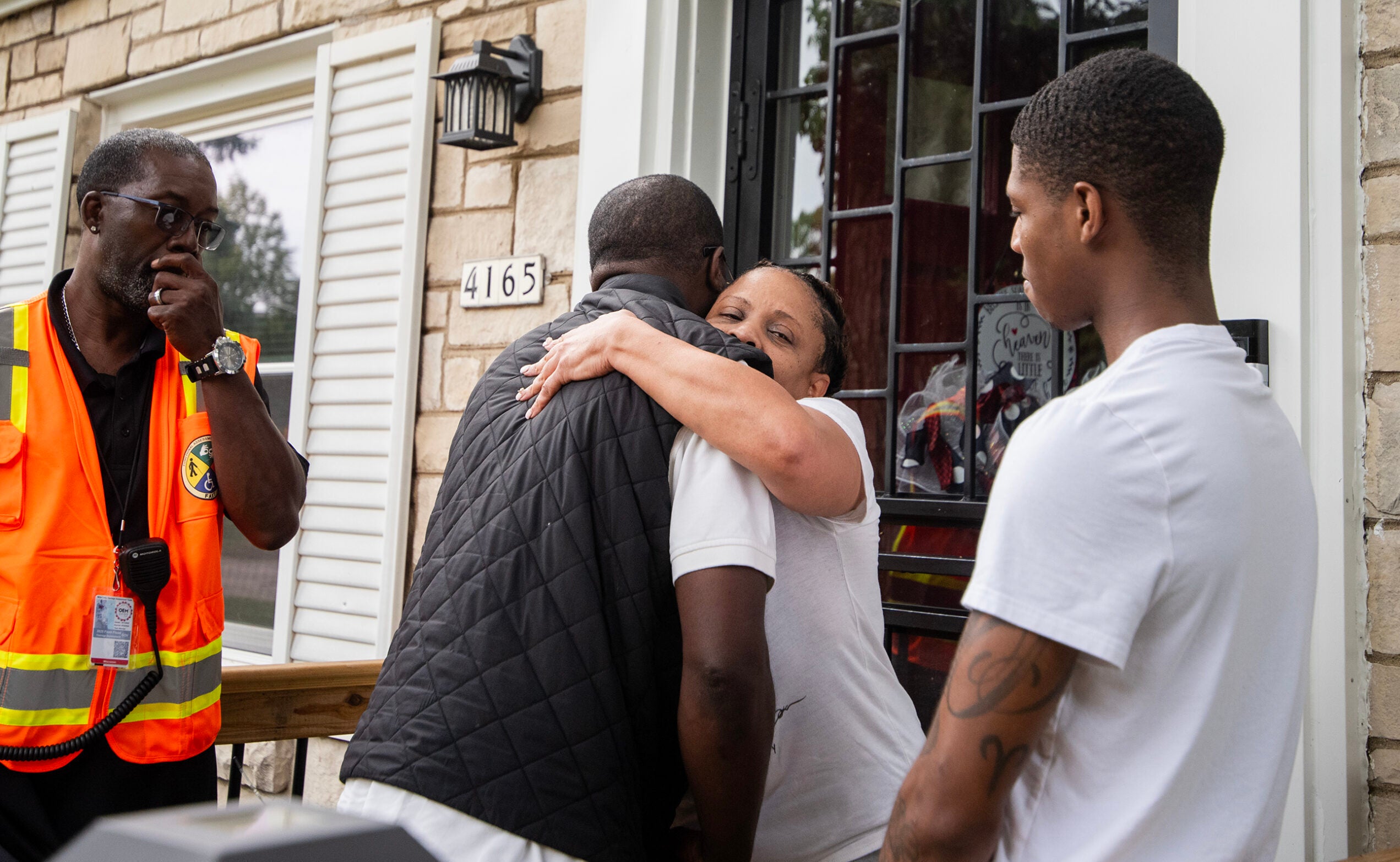Most people have conflicts and arguments, but few people are faced with the high stakes that police crisis negotiators deal with.
Detective Bradley Tatro is the crisis negotiation team leader for the Marathon County Sheriff’s Office, and he’s a board member for the Wisconsin Crisis Negotiators Association. He’s often called to try to defuse the situation and keep people safe when there are standoffs with armed people or someone is threatening suicide.
Tatro said many of the tactics he’s trained in can be useful to anyone in their everyday life. One of the most powerful tools is to actively listen to someone you might be in conflict with.
News with a little more humanity
WPR’s “Wisconsin Today” newsletter keeps you connected to the state you love without feeling overwhelmed. No paywall. No agenda. No corporate filter.
“The focus is to listen to understand, and not listen to respond,” Tatro told WPR’s “Wisconsin Today.”
“Most of us listen to respond. We have a response that we’ve already come up with in our mind that we want to get out, and we’re just waiting for that break in that conversation so you can get your piece out, instead of just waiting, listening to what they have to say, and then giving yourself some time to formulate a response after they’re done,” Tatro said.
Lt. Trevor Bilgo, a trained negotiator for the Brown County Sheriff’s Office and a board member for the Wisconsin Crisis Negotiators Association, agreed.
“I think we all could just take a little more time to listen before we’re all so quick to say something,” he said.
Bilgo and Tatro spoke to “Wisconsin Today” about the evolving science of crisis negotiation, how officers are trained, the role of the Wisconsin Crisis Negotiators Association, and how these skills are portrayed in pop culture.
The following has been edited for brevity and clarity.
Rob Ferrett: Lt. Bilgo, what kind of calls might you get for crisis negotiation?
Lt. Trevor Bilgo: It’s usually calls that are above a basic patrolman’s level. And it could be anything from a suicidal individual, a person in a mental health crisis, a suicidal barricade, or an armed situation, all the way up to assisting the SWAT and tactical units.
RF: Detective Tatro, can you talk about some of the key tactics, maybe even skills, we could call them, that you use when you’re called to help resolve a crisis?
Detective Bradley Tatro: The biggest skill set that we utilize in a negotiation is our active listening skills. Those are things from open ended questions, emotional labeling, paraphrasing, effective pauses, minimal encouragers, I-messages, summarizing and mirroring. We use those techniques along with time to deescalate a situation.
RF: Lt. Bilgo, I might think, ‘OK, either you’ve got this skill or you don’t.’ Is there effective training that helps people develop these skills?
TB: Everybody can be trained in it. But just like any skill, sometimes you have a knack for it. And like any skill, if you don’t train it and practice with it, you can lose it. So this is a skill that crisis negotiators do need to keep up on or in the time you’re called upon, you may not be as proficient or as effective as you could be.
RF: Detective Tatro, a word that gets thrown around a lot these days with policing is “deescalation,” which sounds great in theory. I imagine in practice, with a very emotional situation, it might be easier said than done. What can deescalation look like in a difficult situation?
BT: It’s a great objective. We have to realize also that there are situations where deescalation is not appropriate and we’ve exhausted all other options. What does it look like when we are having that deescalation? It’s a good communication narrative with the person that we’re (dealing with). We’re taking time, we are doing our best to try and understand their point of view from whatever issue is arising.
RF: You both do a job that gets portrayed in TV shows, movies, and maybe people even think they understand your job based on what they see in pop culture. I want to ask each of you what you see on TV and in movies that gets it right or gets it wrong?
BT: Off the top of my head, I can think of the movie “The Other Guys,” where they’re negotiating. Obviously that is a comedy and meant to not portray it properly, but it’s about as bad as it could get as a negotiator in that standpoint. With the trend towards deescalation in policing, some of the shows are looking at negotiation in a better light and more accurately. However, it’s not made for TV stuff. This takes a long time. It can (be unexciting) when you’re talking for a long time and listening for a long time. It’s not really made for Hollywood.
TB: The classic movie, “The Negotiator,” we ask new new (police) applicants, have they watched that movie? There is a lot in there. Sometimes you do have conflicts between your tactical teams and negotiators. Negotiators want to talk and they want to take time, and sometimes the tactical guys want to move and get things done.
Wisconsin Public Radio, © Copyright 2025, Board of Regents of the University of Wisconsin System and Wisconsin Educational Communications Board.






